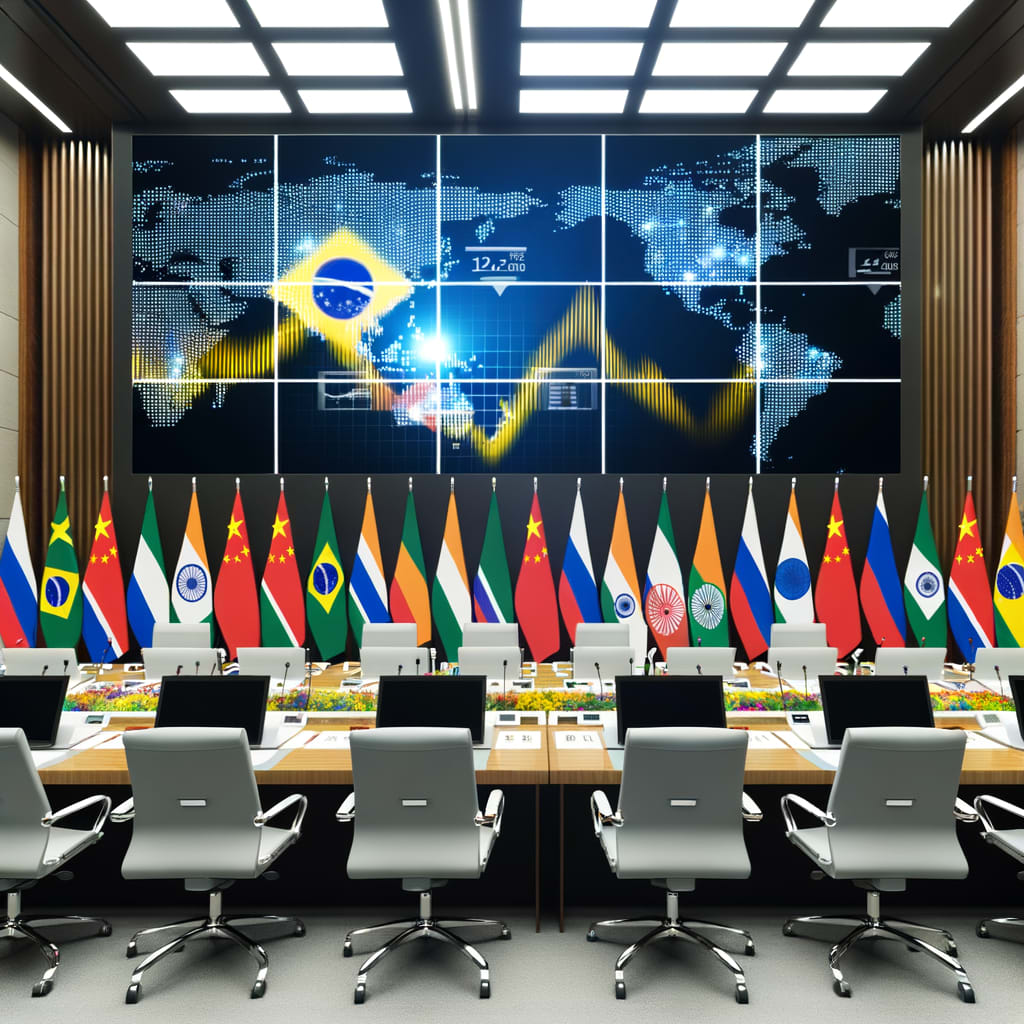BRICS Summit: A Call for Global Economic Cooperation Amid Rising Trade Tensions
BRICS leaders convened on September 8, 2025, for an online summit to discuss the escalating trade tensions and the impact of U.S. President Donald Trump's tariffs on their economies. The virtual meeting, called by Brazilian President Luiz Inacio Lula da Silva, saw participation from Chinese President Xi Jinping and Russian President Vladimir Putin, while Indian Prime Minister Narendra Modi did not attend.
An Alliance Against Protectionism
Chinese President Xi Jinping underscored the importance of a unified response to trade challenges presented by the United States and the need to build an open global economy. Xi focused on the spirit of openness, tolerance, and cooperation, advocating for the protection of multilateralism and the upholding of the multilateral trading system12.
Xi also voiced his support for Brazil in the ongoing Ukrainian crisis, stressing that the conflict could only be resolved considering all parties' security concerns and demands3.
The Impact of Trade Wars and Tariffs
President Luiz Inácio Lula da Silva referred to the economic retaliations imposed by the United States as 'tariff blackmail'4. South African President Cyril Ramaphosa echoed this sentiment, noting that unilateral tariff actions contribute to a protectionist environment, posing hardships for the countries of the Global South5.
President Ramaphosa further highlighted that these punitive tariffs levied by President Donald Trump have already negatively affected employment levels in South Africa and are an obstacle to economic growth5.
Laos Seeks to Expand Global Ties
Meanwhile, the Asian state of Laos has confirmed its interest in joining both the Shanghai Cooperation Organization (SCO) and BRICS to expand economic partnerships and open up new trade routes6. Laotian Prime Minister Sonexay Siphandone said that the country valued the cooperation mechanism, especially to further develop its economy and trade6.
Differing Perspectives and Reactions
Despite the unified call for cooperation against protectionist policies, some members appeared cautious about escalating the trade war with the U.S7. Indian Prime Minister Narendra Modi, a founding BRICS leader, skipped the meeting, which may indicate India's reluctance to enrage the 'America-first' leader7.
White House trade advisor Navarro expressed skepticism about the BRICS alliance, stating that it will not last since the member nations all hate each other
and likened their trade practices to vampires
exploiting the United States8.
Concluding Remarks
The BRICS summit highlighted the challenges posed by the escalating trade tensions and the impact of U.S. tariffs on their economies. It also emphasized the need for cooperation and a unified response to these challenges. The meeting concluded with a call for strengthening the economies of member states and the global South, with a focus on openness, tolerance, and cooperation910.

